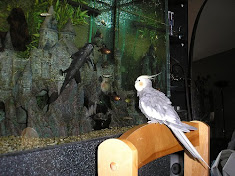 |
| Thumbelina, One of the Parliamentary Strays |
The Canadian Parliamentary Cats have been cared for by volunteers since the 1970s, but their origins go much farther back than that. Since well before exterminators even existed, cats were used in homes, on farms, and in businesses and government buildings to control mice, insects, and other pests. Such was the case with the Canadian Parliament. This laid the groundwork for the Cats of Parliamentary Hill that we know today.
However, cats would eventually be replaced by professional services, sprays, traps, and chemicals-at least in their capacity as governmental mousers. When this happened, the Canadian cats living near the parliament were still fed by the groundskeepers, but their role became less solidified as they were no longer permitted inside. Some wandered off, and the pack (which had gotten used to its inside role) was in question as to whether it would survive.
Local resident Irene Desormeaux stepped in, and voluntarily took over care of the cats. This was in the 1970s, and it was at this time that they really began to be known under their current name, the Canadian Parliamentary Cats (also the Cats of Parliamentary Hill). Like most Canadian cats who are strays, the hardest time of year for this pack is the winter. With no more access to Parliament's chambers, the cats were left to brave the elements on their own. In addition to ensuring that the Cats of Parliament Hill were fed, Irene Desormeaux also had some structures built to shelter them from the wind and the elements.
Not just any structures would do for the Canadian Cats of Parliament Hill. These structures are miniature buildings, with multiple floors, front doors, and in recent years, a "condo." The cats have decks and platforms and each tend toward certain areas of their shelter.
Maintaining the Canadian Cats of Parliamentary Hill
 |
| Rene Chartrand Tending the Cats by Montrealais |
Rene Chartrand took over caring for the cats upon Irene Desormeaux's death in 1987. And in 2008, a small group of volunteers took over from him. They now share the duties, which include maintaining the structures, feeding the cats, arranging veterinary care as needed, and much more.
Occasionally, a cat will need to be removed from the Canadian Parliamentary Cats pack for behavior reasons. Other times, a cat will be adopted to someone in the local community. Though strays, these Canadian cats all have names, and the volunteers know well their different personalities. One could say that the Cats of Parliamentary Hill are as much a part of Ottawa's culture as is Parliament itself.
Written by Rob Zygelman
Learn more about pet care and insurance at http://www.petinsurance101.net
Pet insurance101 is an educational resource providing information about pet insurance and helping consumers make a choice. Robin Zygelman is thoroughly committed to saving animals one at a time.
Article Source: http://EzineArticles.com/?expert=Rob_Zygelman
http://EzineArticles.com/?The-Story-of-the-Canadian-Parliamentary-Cats&id=4916631



0 comments:
Post a Comment